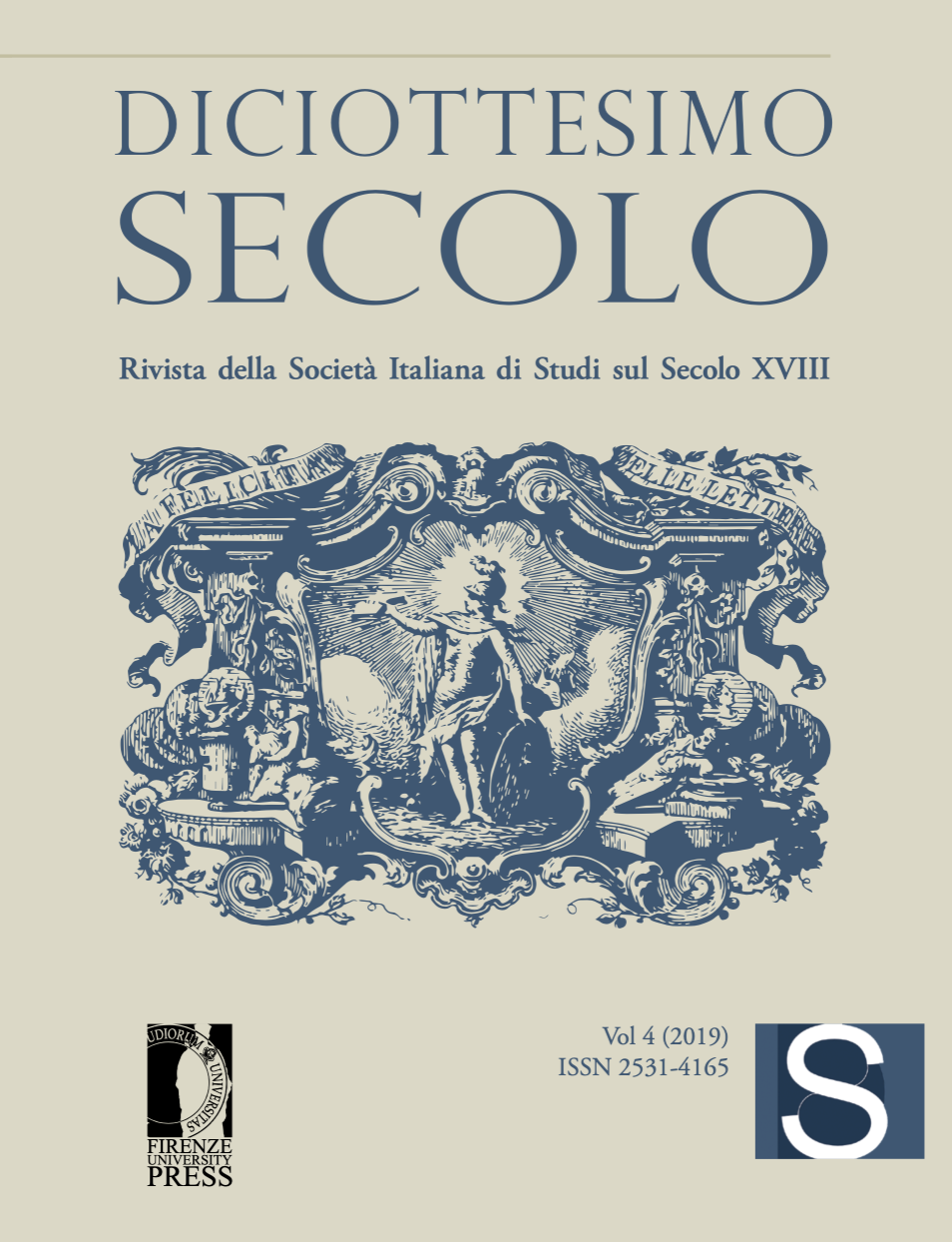In particular, the concept of “Orientalism” has been progressively extended in space and time, far beyond the confines of Edward Said’s study (1978). This extension has led to the increasingly widespread hypothesis of a “European identity” built on the exclusion of “others” since the eighteenth century. This hypothesis is in complete contrast with the positions taken in the eighteenth century by the enemies of the Enlightenment; for these critics, the philosophique body of work instead entailed an interest in and propensity for other civilizations and cultures, and indeed they were suspicious of this interest on the grounds that it threatened, among other things, to call into question the central role of Christianity, considered the only “true” religion.
In order to clarify the terms of this question, “Diciottesimo secolo”invites scholars of the eighteenth century to reflect on how extra-European cultures were represented in the context of the artistic, philosophical, literary and historical production of EnlightenmentEuropean culture. How were other parts of the world considered byEnlightenment thinkers and how were they defined, including at the lexical level?
This issue of “Diciottesimo secolo” aims to answer this question. We will accept original research characterized by philological rigor and based on the study of sources such as comedies, travel diaries, historical works, theatrical and musical representations, novels, geographical maps, etc.
Enlightenment and extra-European cultures
The deadline for submissions is January 31, 2022.
We welcome papers in Italian, English and French.
Article length should not exceed the following number of characters(including spaces and footnotes): 50,000.
Papers should be submitted – along with an abstract in English (max1.500 characters, spaces included) and five keywords in English – via online submission system, at the journal’s site. Authors are also requested to indicate their university or institution of affiliation.
In addition to the monographic Dossier dedicated to L’Illuminismo e le culture extraeuropee (Enlightenment and Extra-European Cultures), issue VII/2022 of “Diciottesimo Secolo” includes three additional sections: “Saggi” (Essays), “Note critiche” (Critical Notes), and “Recensioni” (Reviews). Submissions in the “Essays” and “Dossiers” sections are subject to double blind peer review.
The deadline for submissions is January 31, 2022.
The length of the texts must not exceed the following numbers of characters (notes and spaces included):
Essays and Dossiers: 50,000;
Critical Notes: 25,000;
Reviews: 10,000.
Contributions must be sent to this address: diciottesimosecolo@sissd.it together with a brief CV of the proposer.
The texts can be written in Italian, English and French.
Papers for the “Essays” and “Dossier” sections must be accompanied by an abstract in English (max 1500 characters, spaces included), and by the indication of five keywords in English.

